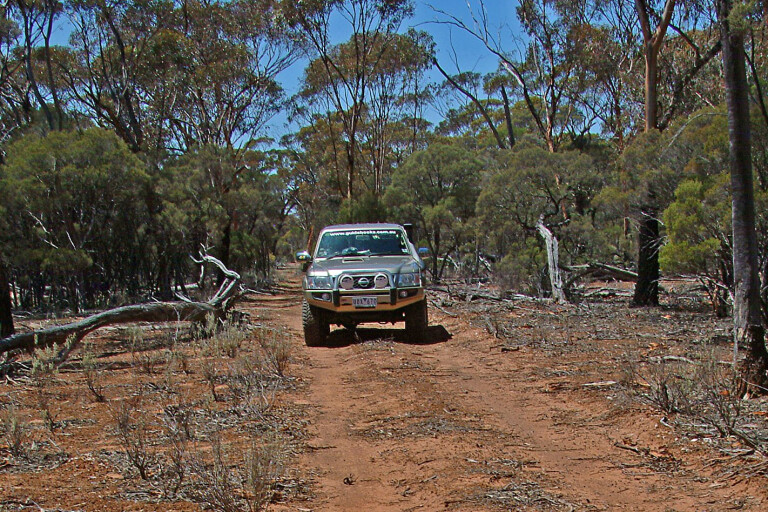
There are a few potentially life-saving lessons to be learnt from the latest incident of a couple becoming stranded when their vehicle broke down in a remote region of southern WA last October.
There are also a few unanswered questions too, I reckon, from what I’ve read in the newspapers about the police search – its duration, adequacy and location.
Jeremy Sim and his wife, Marama, from the thriving township of Esperance, are both experienced campers. They headed off in their Nissan Patrol for a few days camping in the goldfields area west of the small hamlet of Salmon Gums, which is about 105km north of Esperance.
When they failed to return at their allotted time the alarm was raised and the police began a search for them. The focus of the air search was moved to the coast between Esperance and Hopetoun after one of the couple’s mobile phones had been detected by a phone tower near the small settlement of Munglinup, on the coast road east of Ravensthorpe.
After an “extensive search” (which lasted between two and four days, depending on who you believe), the police response was called off “pending further information”. A pretty poor effort in my opinion. At the time of going to press there was little other information as to why the search for the couple was so short; although a police spokesman expressed that the area they had to search was massive, and that until they could get further info they were going to have to suspend their response. Geez, if my family or I were lost I’d hope the police and official search groups would put more effort in than just a few days searching.
Despite authorities suggesting that the search should be left to them, friends of the couple refused to give up and, using the mud map the couple had left with them, continued to search on the ground. The police also had access to the mud map but seemed to ignore it – apparently saying the map was pretty rough. Mud maps generally are! Instead, the police seemed to put their faith in the mobile phone detection despite admitting it wasn’t 100 per cent reliable.
The couple were found by their friends near Peak Charles, 200km northwest of Esperance, just over 24 hours after their friends started looking for them. Jeremy and Marama were still with their vehicle, had some water left and had lit a large fire when they saw search aircraft (without success). The couple’s vehicle, which had been disabled by a stick puncturing the radiator, was towed back to civilization.
From reports it appears the couple did a lot of things correctly. Despite it being a relatively short trip into a not-so-remote region of WA, they were well-prepared with extra fuel and water in the vehicle. They told their friends where they were going, when they were expected back and left a mud map of their route. Most importantly, when they broke down they stayed with the car and prepared a large fire using the vehicle's mudflaps to greatly increase the smoke when they lit it.
However, there are always lessons to be learned from any experience, good or bad. Relying on a mobile phone outside major metro areas and rural towns is a bad idea, while a CB radio is basically a short range communications device.
They should have had an HF radio or a sat phone for longer range communication, or just an EPIRB or a device like a ‘Spot’ for emergency notification, tracking and location. Of course, hindsight is a wonderful thing – usually experience comes just after you need it.
What really concerns me in this tale of survival is the police response. The police have been reticent in speaking to the media, however Jeremy is pursuing his own enquiries.
Questions need to be asked as to why the police search was called off so early and why the mud map was ignored by officials – especially when it proved vital to the couple’s rescue. Protocols clearly need to be changed in the wake of this drama.

COMMENTS